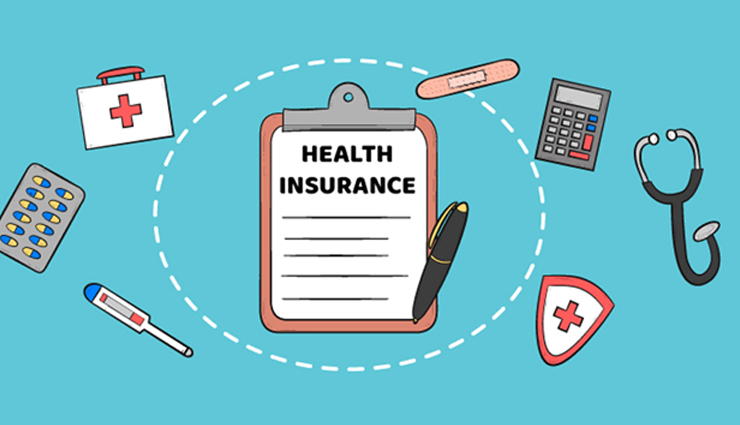
This guide offers a comprehensive approach to optimizing your coverage, from reading policy language to utilizing preventive services and appealing denied claims. By applying these tactics, you can confidently navigate the complex environment of healthcare expenses, ensuring you obtain the care you require while efficiently managing costs. These ideas can help you whether you are a seasoned insurance holder or a beginner in health coverage.

Understanding your health insurance policy is critical to maximizing your coverage. Begin by carefully reading the policy documentation supplied by your insurer. Take note of any exclusions, deductibles, and coverage limits. This information will enable you to make informed decisions about getting medical treatment. Learn about the network of doctors, hospitals, and clinics in your plan's network, as using these providers can dramatically minimize your out-of-pocket payments. Be informed of any pre-authorization requirements for specific procedures or treatments. Check your policy for updates or adjustments regularly, as these can affect your coverage. Understanding your policy's Medisupps.com allows you to avoid unexpected charges and effectively navigate the healthcare system while maximizing the advantages offered.
# In-Network Care
Choosing in-network healthcare providers and facilities is crucial for maximizing health insurance benefits. In-network providers have established agreements with your insurance company, resulting in negotiated rates that can significantly reduce your out-of-pocket expenses. When you opt for in-network care, you ensure that your insurance plan covers the services you receive to the fullest extent. This proactive approach also minimizes the risk of unexpected bills or surprise charges. Before seeking medical attention, verify the network status of your chosen healthcare provider to avoid unnecessary financial strain. By prioritizing in-network care, you save money and optimize the value of your health insurance, making the most of the resources available to safeguard your well-being.
Preventive services are an essential method for maximizing your health insurance advantages. These services include a variety of screenings, immunizations, and check-ups aimed at discovering any health issues early when treatment is easier and less expensive. By using these covered services, you prioritize your health and save money on future medical bills. Regular health check-ups, blood pressure checks, cholesterol tests, mammograms, colonoscopies, and immunizations are all examples of preventive care. These preventative measures can aid in the early detection of risk factors or diseases, allowing for rapid action and improved health outcomes. Because most insurance plans include preventive care at no additional cost, scheduling regular screenings and check-ups benefits your health and saves money.
# Generic Medications
Whenever possible, choose generic prescriptions to maximize your health insurance advantages. Generic pharmaceuticals are less expensive alternatives to brand-name medications, providing the same active components and therapeutic effects for a fraction of the price. For generic pharmaceuticals, health insurance plans frequently include lower co-payments or co-insurance, which means you'll pay less out of pocket. By choosing generics, you save money and help keep your entire healthcare costs under control. However, if you are on a specific treatment plan, you should discuss your healthcare professional before switching to a generic option. Your health and well-being should always come first, and in many circumstances, a generic equivalent can be just as effective as the brand-name equivalent.
Using telehealth services to maximize your health insurance benefits can be a wise decision. You can get medical care from the comfort of your own home thanks to the convenience of virtual consultations. This method not only saves you time and money on travel, but it can also lower your out-of-pocket expenses. Telehealth sessions are covered by many insurance policies, making them a cheaper alternative to in-person appointments. Telehealth provides various services, including medical advice, medicines, and mental health care. It's beneficial for minor illnesses, follow-up appointments, and non-emergency circumstances. Furthermore, telemedicine offers continuity of care during health crises or when physical access to healthcare practitioners is constrained. You can properly manage your health while making the most of your insurance by embracing telehealth choices.
# Review Bills and Statements
Examining your medical bills and insurance statements is essential in making the most of your health insurance advantages. Mistakes and mistakes can occur, resulting in overcharges or improper coverage denials. By carefully reviewing these records, you may confirm that you are only being billed for services you have received and that your insurance company is covering what it should. Check for inconsistencies, such as duplicate charges or services not provided. If you discover an inaccuracy, call your healthcare practitioner and insurance company immediately to correct the problem. Maintaining a careful check on your invoices and statements will save you money and headaches while ensuring you receive the full benefits you are entitled to under your insurance policy.
# Keep Records
Keeping meticulous records of your medical bills and communications with your health insurance provider is essential for maximizing your benefits. Keeping organized documentation of bills, receipts, and insurance statements lets you track your healthcare spending, ensures billing accuracy, and streamlines the claims process. These records are instrumental during tax season since they allow you to claim qualified deductions. If there are any discrepancies or refused claims, having thorough records allows you to give proof for appeals. Additionally, keeping track of the dates, times, and specifics of medical appointments, treatments, and discussions with insurance officials might aid in the event of a disagreement. Maintaining careful records, whether for financial planning, claim resolution, or overall peace of mind, enables you to handle the complexity of health insurance with confidence and ease.
A Flexible Spending Account (FSA) is an effective tool for maximizing healthcare benefits. This includes deductibles, co-payments, prescription prescriptions, and even over-the-counter medications. You successfully minimize your taxable income by using pre-tax monies, saving money on income, and Social Security taxes.
Plan your costs wisely to make the most of your FSA. Estimate your yearly medical expenses and contribute an amount that covers them. However, remember that FSA funds are subject to a use it or lose it policy after the plan year. Please keep track of your FSA balance and submit it on time.
# Appeal Denied Claims
When faced with refused insurance claims, appealing the decision is critical in maximizing your health insurance benefits. Insurance claim denials can occur for various reasons, including administrative errors or insufficient evidence. Gather all pertinent material, including medical records, bills, and correspondence, to make a practical appeal. Examine your insurance to learn the particular coverage specifics and to check that the disallowed service falls within the scope of the policy. Many insurance companies include an appeals mechanism, so read their instructions carefully. Timeliness is critical, so submit your appeal as soon as possible. Persistence pays off; appealing denied claims might lead to coverage reassessment, maximizing benefits.
Conclusion:
Including these suggestions in your healthcare management approach can significantly impact your financial well-being. You may guarantee that your health insurance benefits work to their best potential by proactively understanding your policy, utilizing preventive services, and negotiating claim denials. Remember that knowledge is your most powerful ally, and by being aware and watchful, you can protect your health while reducing unexpected financial obligations.